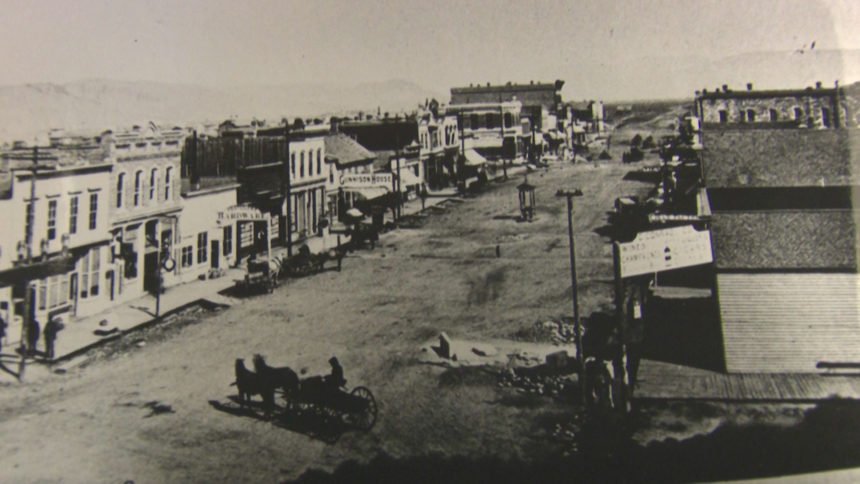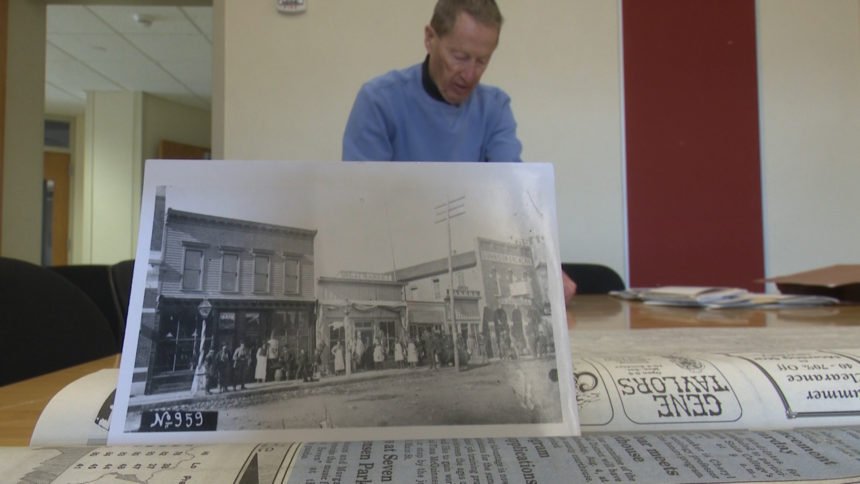Learning from the past: Spanish Flu vs COVID-19 in Colorado


GUNNISON, Colo. (KRDO) -- The Western Colorado town of Gunnison, like so many communities across the country, is currently on lockdown because of COVID-19.
However, closing town to stop the spread of an infectious disease is nothing new to Gunnison. It’s a part of the town's history.
In 1918, the Spanish Flu spread across the globe, killing an estimated 2% of the world's population. The small Colorado town of Gunnison took progressive steps to stop the spread into their own community, steps that mirror our own today during the COVID-19 pandemic.
“I’ve got to give Gunnison a lot of credit," said Dr. Duane Vandenbusche at Western Colorado University in Gunnison. "They were very forward-thinking in that they recognized the problem for what it was and shut this town down, lock stock and barrel.”
Dr. Vandenbusche has been a history professor at Western Colorado University for more than 50 years, studying Gunnison’s response to the Spanish flu.
He says that while the rest of the country downplayed the Spanish Flu for economic and political reasons. Gunnison took measures that were viewed as extreme by some at the time.
Gunnison shut down its Main Street, quarantined folks entering town via train for up to three weeks in one of the University's dormitories. Local police even arrested two individuals who were caught trying to sneak into town.
“The Public Health Officer and the Sheriff, and everyone else in town was on board," said Vandenbusche. "That’s why these guys trying sneak in were turned in immediately.”
As a result of the lockdown, only two Gunnison residents died from the initial waves of the Spanish flu.
Vandenbusche admits Gunnsion was an isolated mountain community where the people were self-sufficient, making it easier for the folks to adhere to the lockdown policies.
However, nearby communities, similar in makeup to Gunnison, weren’t so lucky.
“In Silverton when they did not have this ironclad blockade, 10% of the population died. Tremendous numbers in Salida died, tremendous numbers in Montrose died," said Vandenbusche. "Gunnison recognized it, others did not especially early on. When this thing took hold, it took out a lot of people.”
However, Vandenbusche says Gunnison lifted the lockdown too early. In spring of 1919, nine more people in town fell victim to the Spanish Flu.
The history professor says there is a lesson to be learned there, but that’s not the only one for people dealing with COVID-19 today.
“When looking at Gunnison shutting down, everybody ought to obey with what we are trying to do in the United States today," said Vandenbusche. "And that is keep our distance from each other. When this thing hits you better not ignore it and you better not pass it off as just an ordinary flu.”
